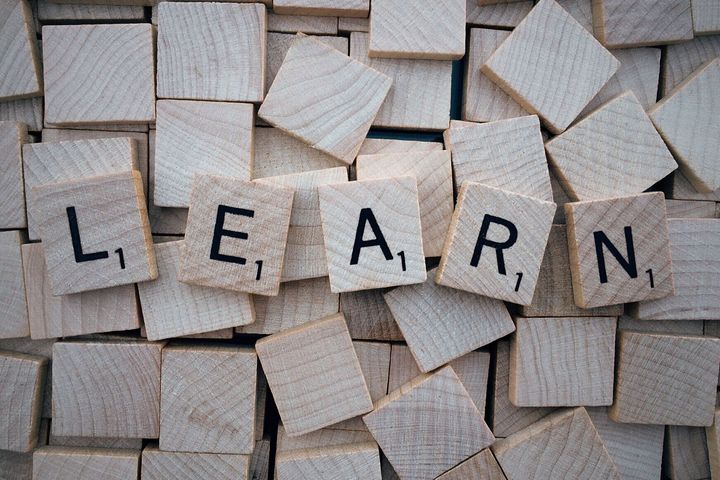
Intercultural empathy: three examples
A 8 minutes read written by Sonia H on June 2023
Be kind. Not everyone is like you, and not everyone should be. You may find others weird, and probably others may find you weird too. Don't do to others what you wouldn't want to be done onto you.
This is a subject I often discuss with my Chinese-Canadian friend and another Moroccan friend. It never gets old, and unfortunately it is still relevant (it may still be for a while).
I did get a lot of crap when growing up for being of mixed background. My queer Chinese-Canadian friend, who lived in France for 12 years, was asked quite insistingly where they are from. My Moroccan friend who now lives in Spain, is still struggling with her identity as an immigrant for being different than what surrounds her. Identity isn't something easy. Beginning anew somewhere else while being different isn't easy.
Generally, when you are different in another country, you need some sort of buoy to hold yourself into. The stronger the waves are against you, the fiercer your intentions to hold on to the buoy. Being different in a majority of similar people is quite complex - and the psychological feelings related to it don't disappear overnight.
Here go the 3 stories.
1) "Where are you really from?"
My queer Chinese-Canadian friend got recently asked where they are from in a concert. It was a random French woman they didn't know. That person came straight to them and asked where were they from. So far so good. They answered "Canadian". "No, but where are you really from? You look Asian".
Uf. At some point, my friend politely declined to answer questions. The French woman that asked them felt offended for not getting the answer, and went on to say that she - the French woman - wasn't a bad person, nor racist, and that the impolite one was actually my friend for not wanting to answer.
Takeaways
- We cannot essentially judge the other person - maybe she didn't have the tools to handle such a situation with more care. However, she could use my friend's feedback to question her ways of approaching, of asking, instead of getting offended.
- Curiosity is part of us human beings, but it is felt quite differently when we ask potential touchy questions (such as identity and race) with people we don't know. I would ask only if there is a safe space for the other person, or if the other person brings up the subject themselves. Communication happens when both people participate and want to listen and speak. For these subjects it's the same: if you only want to satisfy your curiosity without staying there for the other person, a defensive reaction is likely. It's not so much about the question itself, but about the way you ask it.
- In general, we could explain that person why her question could be interpreted in different ways, and even be offensive. Even though she was an adult, that doesn't mean she has to know how to do things. We learn by making mistakes, and awareness develops with practice and mindfulness. That, though, leads us to the other common conception that it is no one's responsibility to teach another person how not to make such mistakes. If it were up to me, I'd say both are valid. In my case I'd try explaining, and if the other person keeps on being not nice, then I'd withdraw my bridge-building efforts.
- The fact that we all live in a globalized world where we have at least a bit of knowledge of so many cultures - which technically should give/encourage people to be more aware about others. It doesn't always happen. Not everyone goes to look up something they don't understand. The way we handle people who fall into that slippery slope of potentially inadequate questions is ultimately up to us, regardless of our duties as citizens of globalized societies. There are many ways of calling out certain behaviours, but improving communication can never have a bad result. No matter how long it takes us to be all more empathetic with each other.
2) Inverted hate speech
A story of mine: a Moroccan friend of a Moroccan acquaintance used to have very, very hardcore opinions about Jews - most notably the part where "we should all die, or be thrown to the sea". The other guy was concerned about his friend's remarks, and so he told me. He told his friend he had a Jewish friend, and at the end he agreed to meet up.
And so we met, and at first I was very scared. He looked at me as if he had never seen anything like me before. He looked defiant, like he didn't trust me. Then I asked him to tell me his opinions, and promised I'd listen quietly to what he had to say. He spat all he thought of Jews for about half an hour if not more. My heartbeat went up, but I tried to stay as calm as possible - after all, I promised him I'd listen quietly, and it was me who wanted to meet up to discuss this. Once he finished, he asked me what I thought about it - "Well, those are your thoughts. I respect them, but I can disagree". I guess he didn't expect such an answer, so he looked startled. I asked him if he had ever met a Jew before me. No. Ok. "Do I look weird? Do I look evil? Or do I look like any other random person you'd see in the subway?". "You look normal".
"Now, imagine the positions were inverted. Imagine someone would sit in front of you, for half an hour, telling you how Moroccans/Muslims/Imazighen should die, be thrown into the sea, or that they are inherently evil. How would you react?"
He went pale. He said he'd be shocked, angry, full of rage. "How did I react, instead?" "You were polite and listened to me without interrupting". He then went on asking me questions to understand how Jews were: the culture, the religion, customs, language, and more. I even told him some things in his native language, Tamazight.
"Do you guys control the world?" No. Poor Jews exist. Not everything is Wall Street. "Do I look extremely fancy to you?" "You look normal". There you go. I was studying Middle Eastern studies back then, so I knew a bit more about how to build bridges between both cultures. He said he would try to find out more about Jews in an unbiased ways, as I was nice and not what he expected I would be.
Takeaways
- Sometimes to unknot a knot, you have to be there and listen to the other. It can be risky - but showing that you are worthy of respect, like any other person, sometimes doesn't work in absentia. Some thoughts people have of others are rooted in disinformation, hate, personal issues, insecurity, and power dynamics between peoples. No one is born hating. Hate is created and is fed into people.
- A kind and human gesture maybe can't solve a conflict, but it can make a little step. Fortunately, the world has many cultures - with its differences, varied perspectives, and mentalities. The first step to build bridges is to look at the humanity we all share, and from there go deeper into things. If someone dear to you upset you, instead of shouting at them and putting the guilt on them, you could also say "I love you very much, and that's why I would like to let you know that this thing you did made me a bit upset. Can we maybe discuss it?"
- Patience and out-of-the-box thinking. They're vital. I could have gotten extremely angry and defensive at what that guy said, but I was trying to understand how he ended up with those thoughts in his head. I tried to imagine him as a young child, in the social circumstances in which he grew up, and then as an immigrant in the country where both of us used to live. As an Amazigh, he also would have a national narrative that is slightly different from what surrounds him, depending on the place. Trying to be understanding won't always work, but even if it doesn't, the path to mutual awareness will be open.
3) Loyalty issues
My Moroccan friend has been living in Spain for over three years. She speaks Spanish fluently. However, except for another Moroccan friend, all the other friendships are Spanish. She feels misplaced, and constantly missing her country. Like what we said about the buoy before, the more cast aside you feel, the stronger will you hold the buoy. As an immigrant, regardless of your mastery of the language, you are in a disadvantaged position when compared to the natives. You have to build up a whole new social reality for yourself, learn the unwritten rules, and social preferences.
She often has defensive episodes in which everything about her native country is perfect, and where her host country is bad, as if she was forced to be there. That, being irrational, is an emotional reaction to feeling put aside, unrepresented, and not involved. The transition to finding your place in the middle of a different nation/culture is much harder if there's no link. It isn't only about respecting my friend's differences, but about including her into the scene where all the others are, with her differences.
One could say "If she doesn't like it there, why doesn't she go back home? No one is pushing her to be there, and she has to adapt to the host country's culture". One thing is adapting and another becoming that culture. She could always go back, yes, but that is like as if, when having trouble in a new city as adults, we'd move back to our parents' just because it's safer there. That's not how people evolve. Evolution also means discomfort and pain, sometimes.
Takeaways
- Respecting other's cultural differences isn't enough if you want to build solid intercultural relationships. It is more like opening your house's doors so that the other person can enter freely, ask you questions, and be comfortably in it, but you must also be willing to enter their house when they open it, ask questions, and allow yourself to be the different one when around their place. An example would be taking the other person's perspectives and cultural preferences in mind when you or a group are taking decisions that involve them.
- Even if one speaks the language of the host country and can behave normally into every day's social situations, that doesn't mean it is all done. When you immigrate you become a minority, and you have to build another social you from zero (I am definitely not the exact same person in Italy, in Spain, and in the MENA region). You have to learn all the unwritten social norms. It is not easy, and feeling comfortable socially in a new society may take years. Moreover, if that person cannot share or live their culture in their host country - because the community is very small or non-existent - it is like leaving a part of themselves somewhere else, being but a box full of different unassembled pieces where they currently live. That is painful.
- If you are X and Y is different and weird for you, you are probably also different and weird for X. It is that simple. Don't take for granted that what you do is the only way to do things. We live in diverse societies, and are different human beings. "The norm" is very subjective. With that said, integrating into a new culture goes beyond language, and it is a journey. If you can give a hand, or at least give emotional support, that already speaks volumes for an immigrant.
There you go, I hope this helped. Building bridges is an ongoing process. We learn from mistakes. We are not born knowing how to handle social situations. But a curious and sensitive spirit can go a long way, and that is something we can learn and cultivate.




Comment